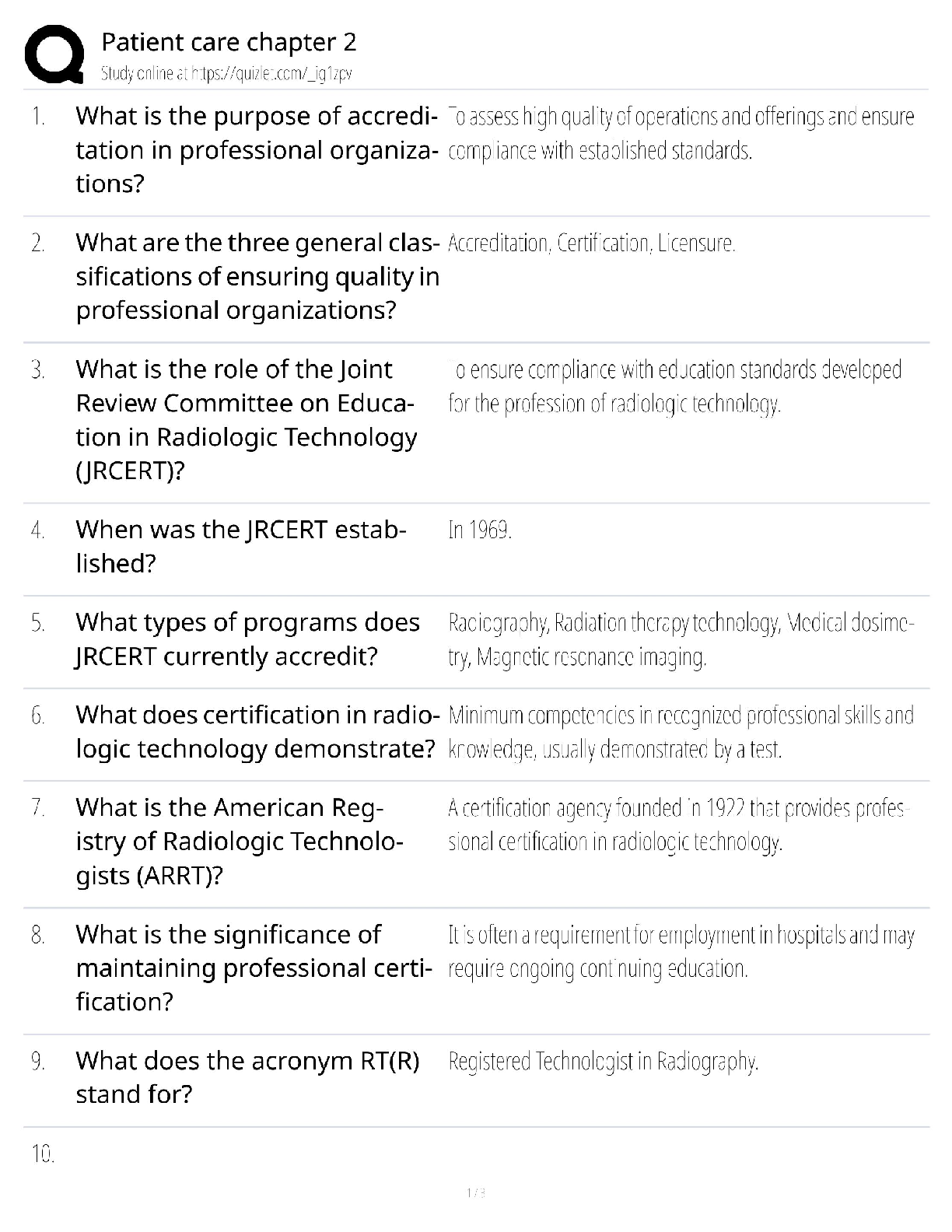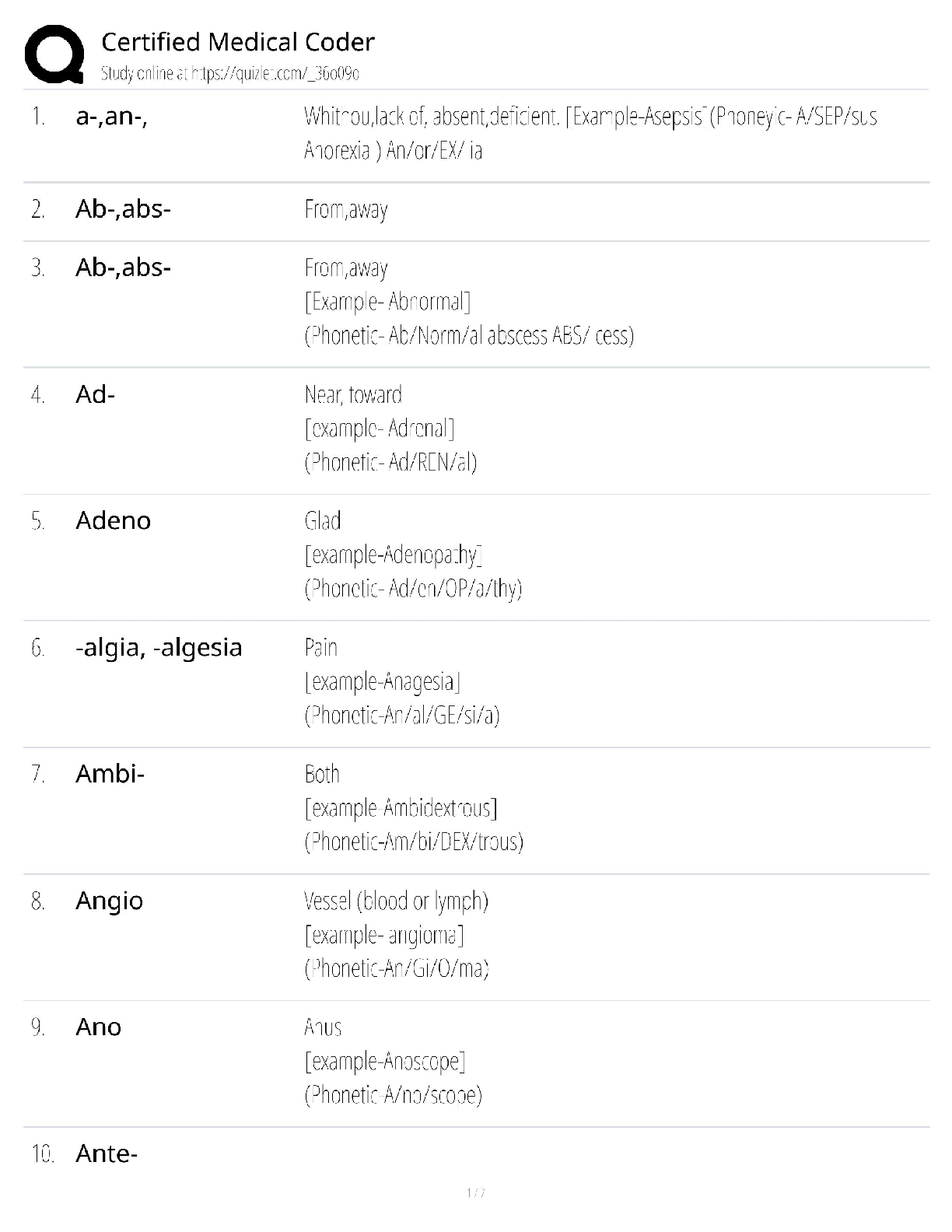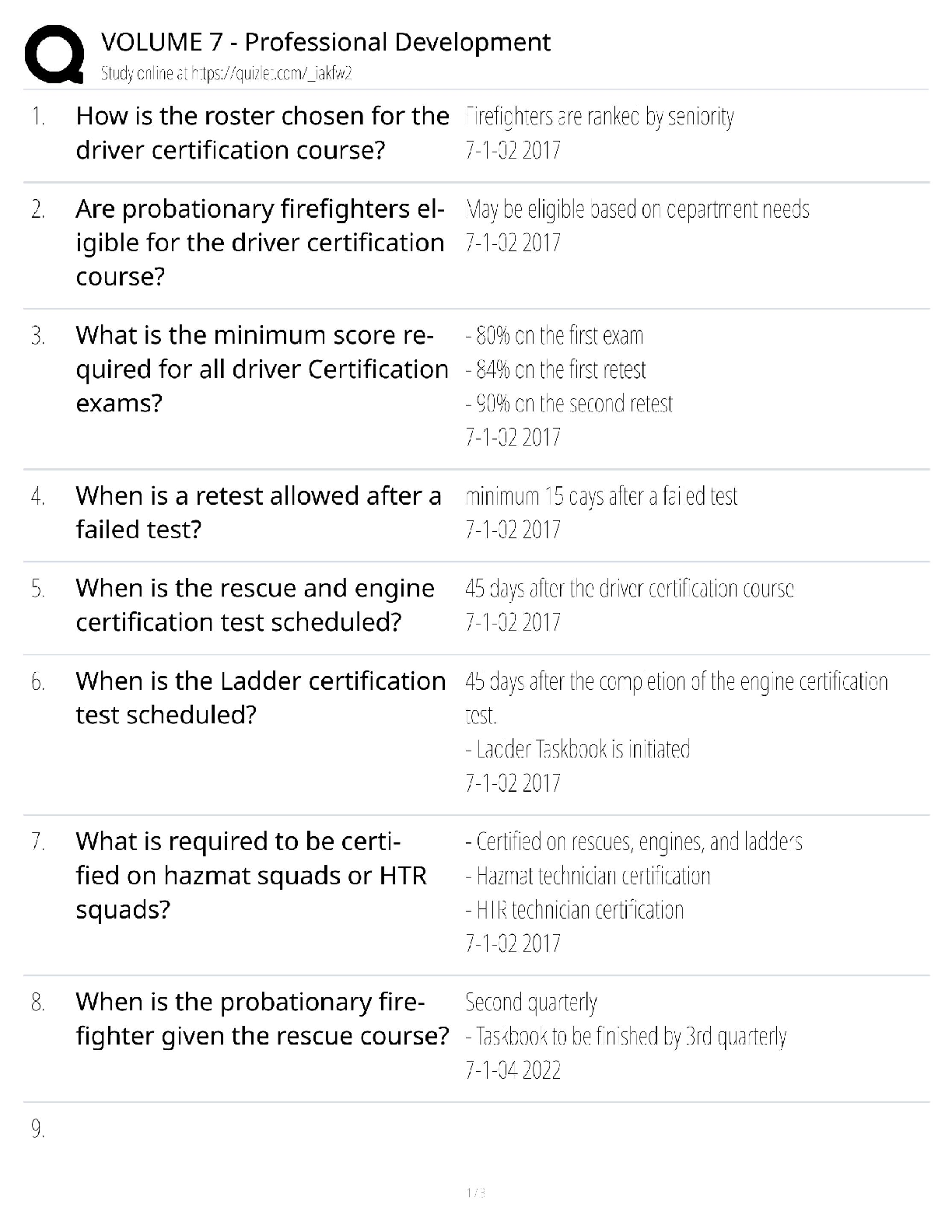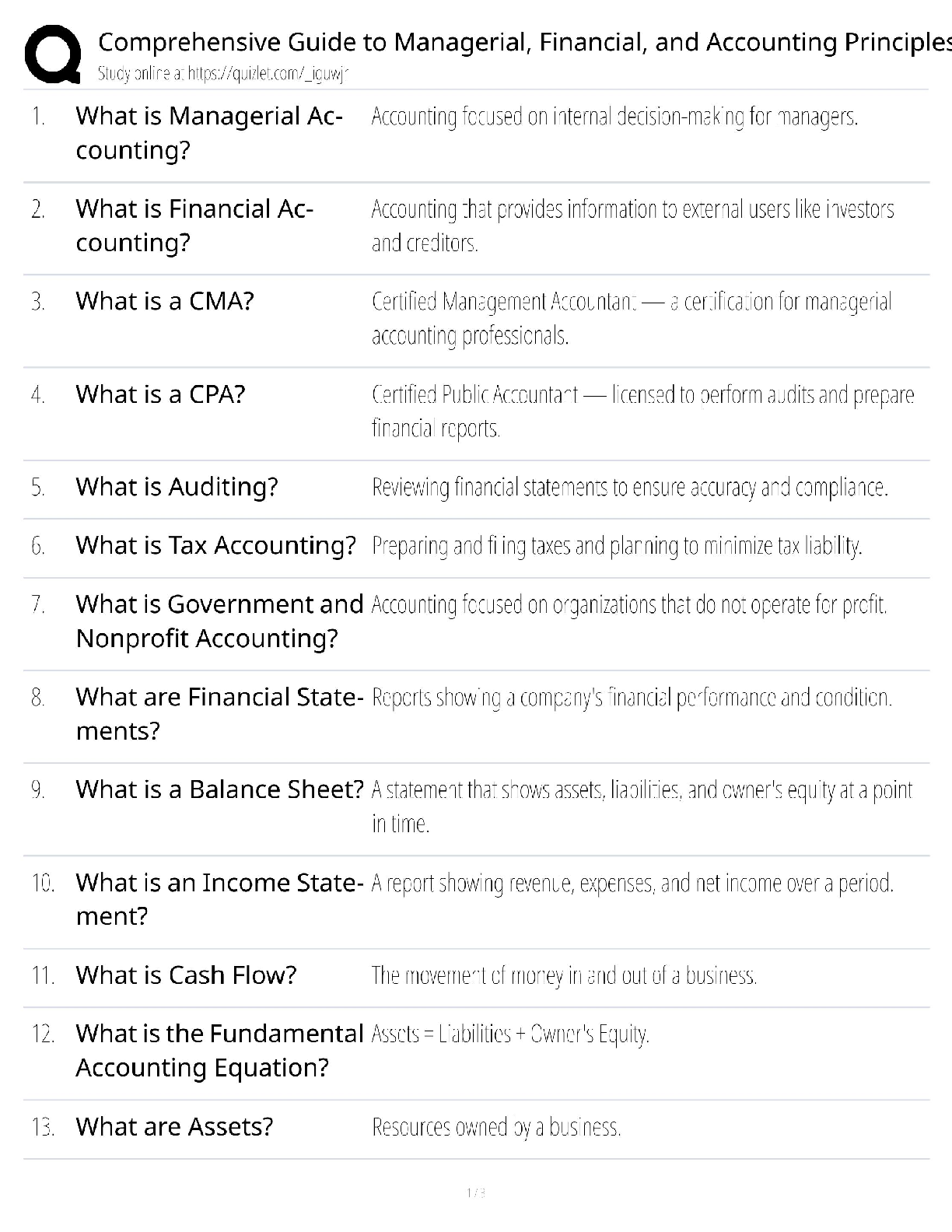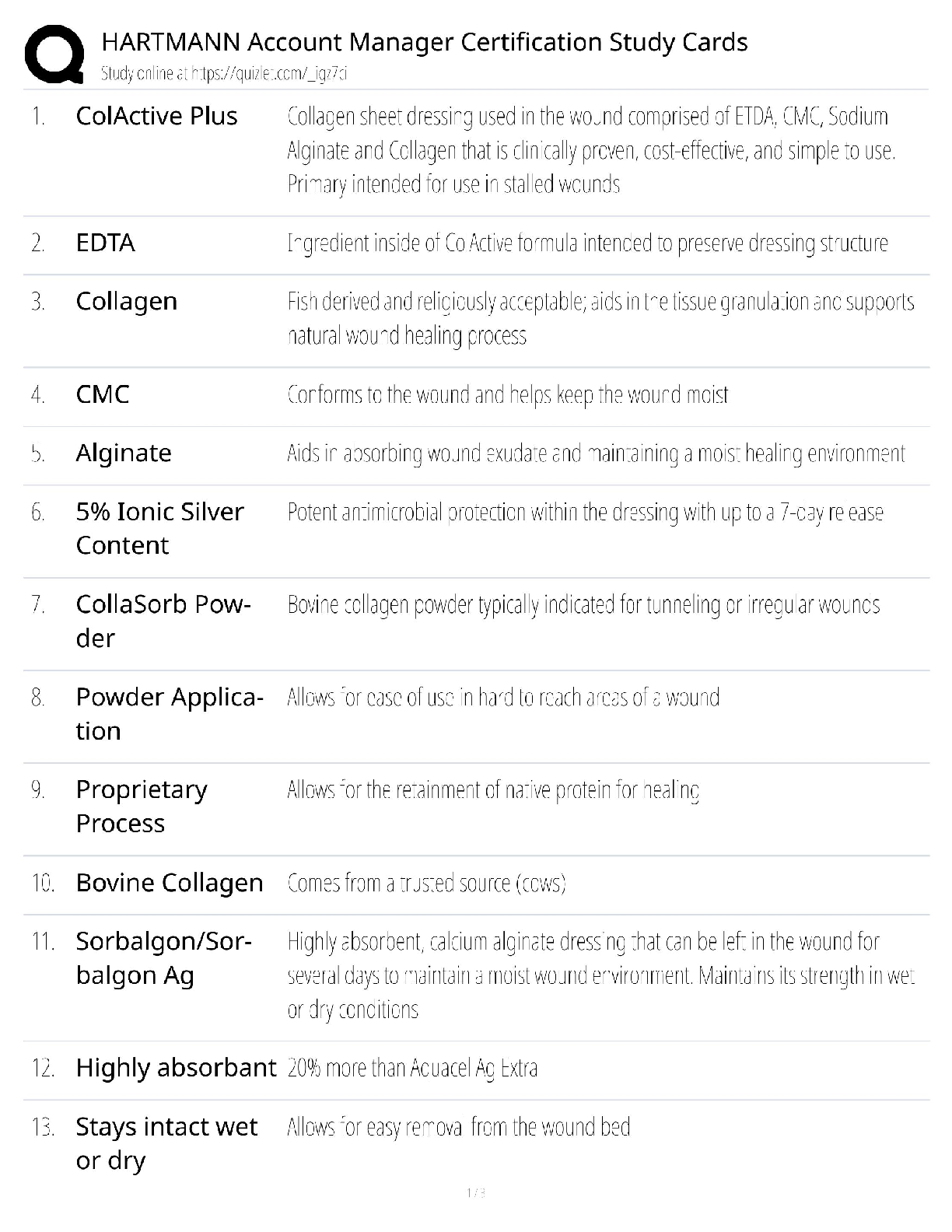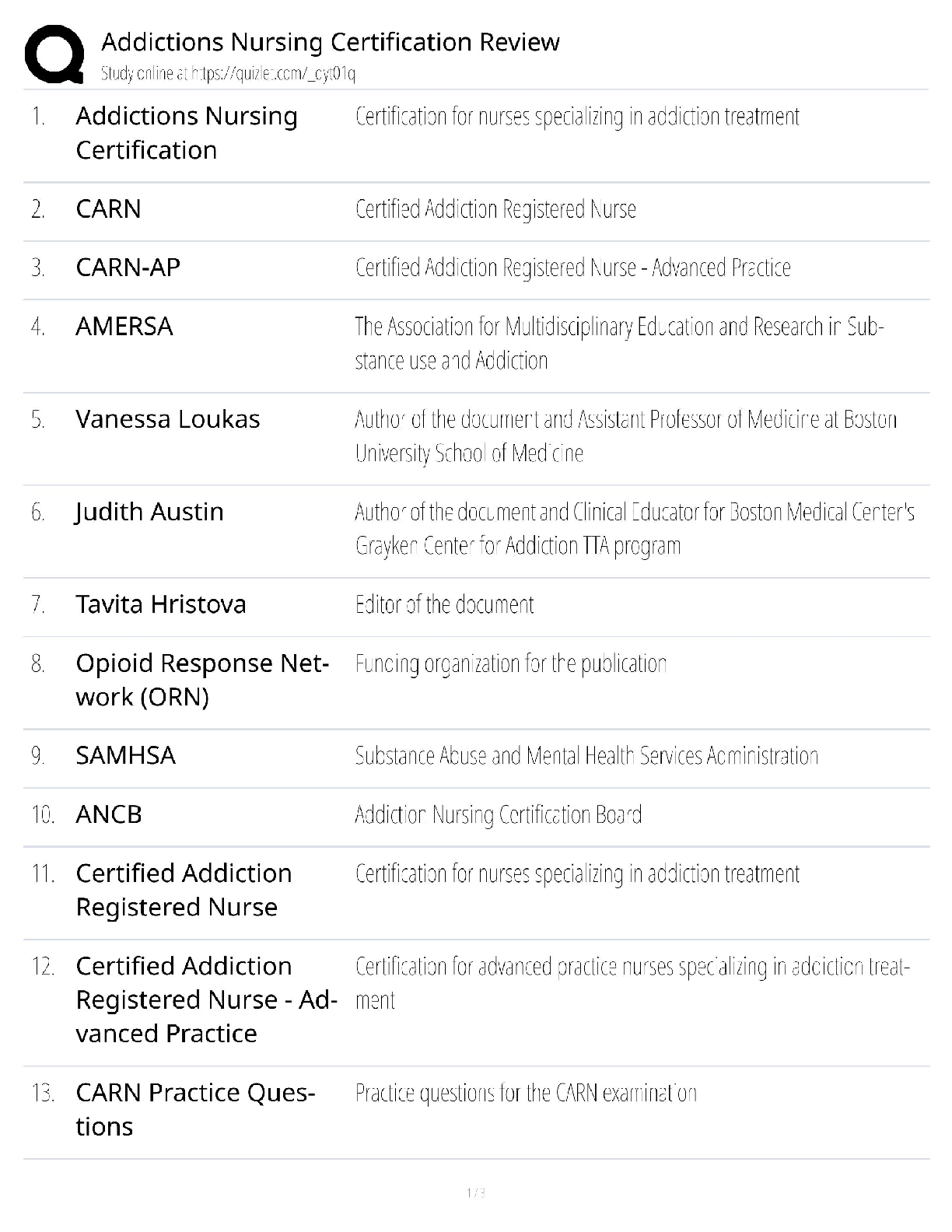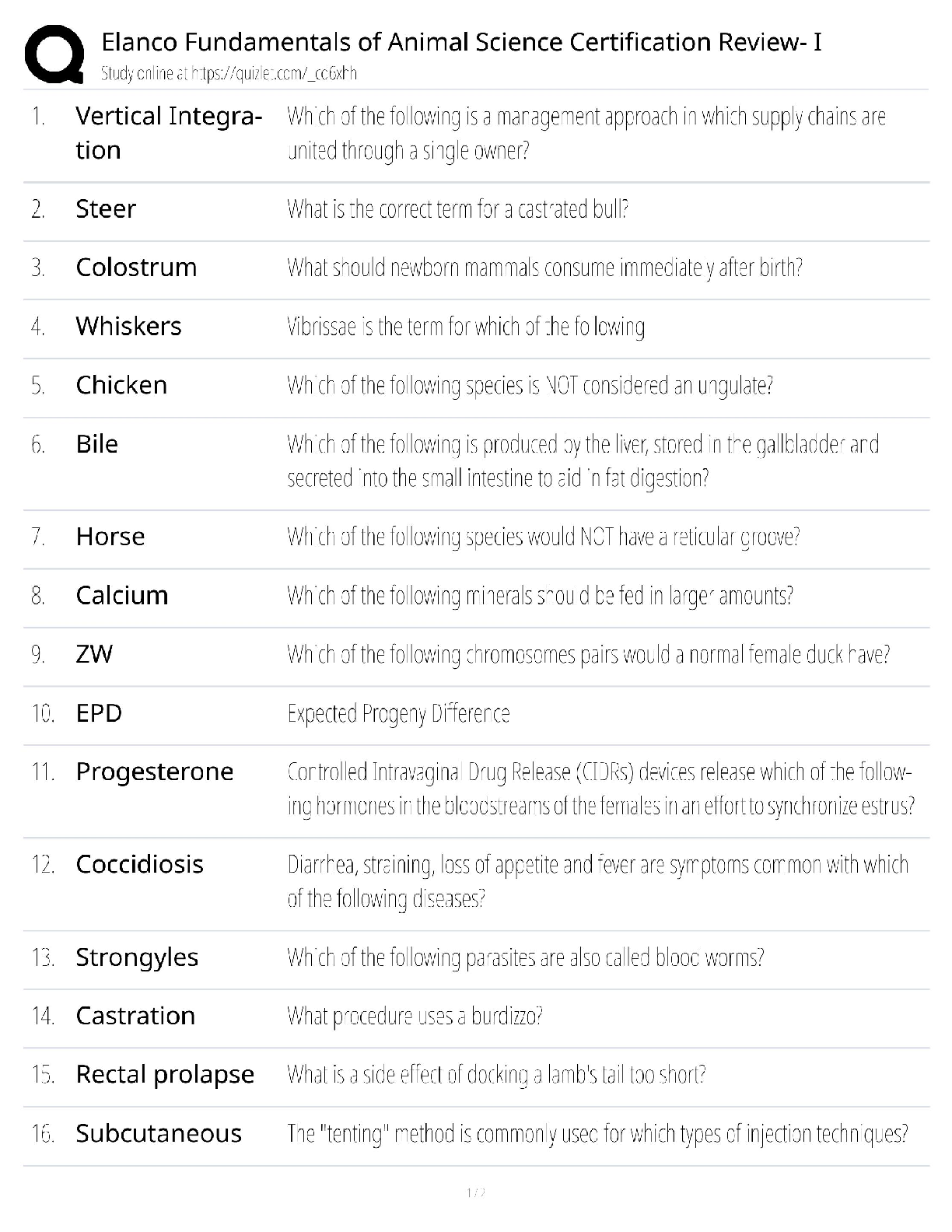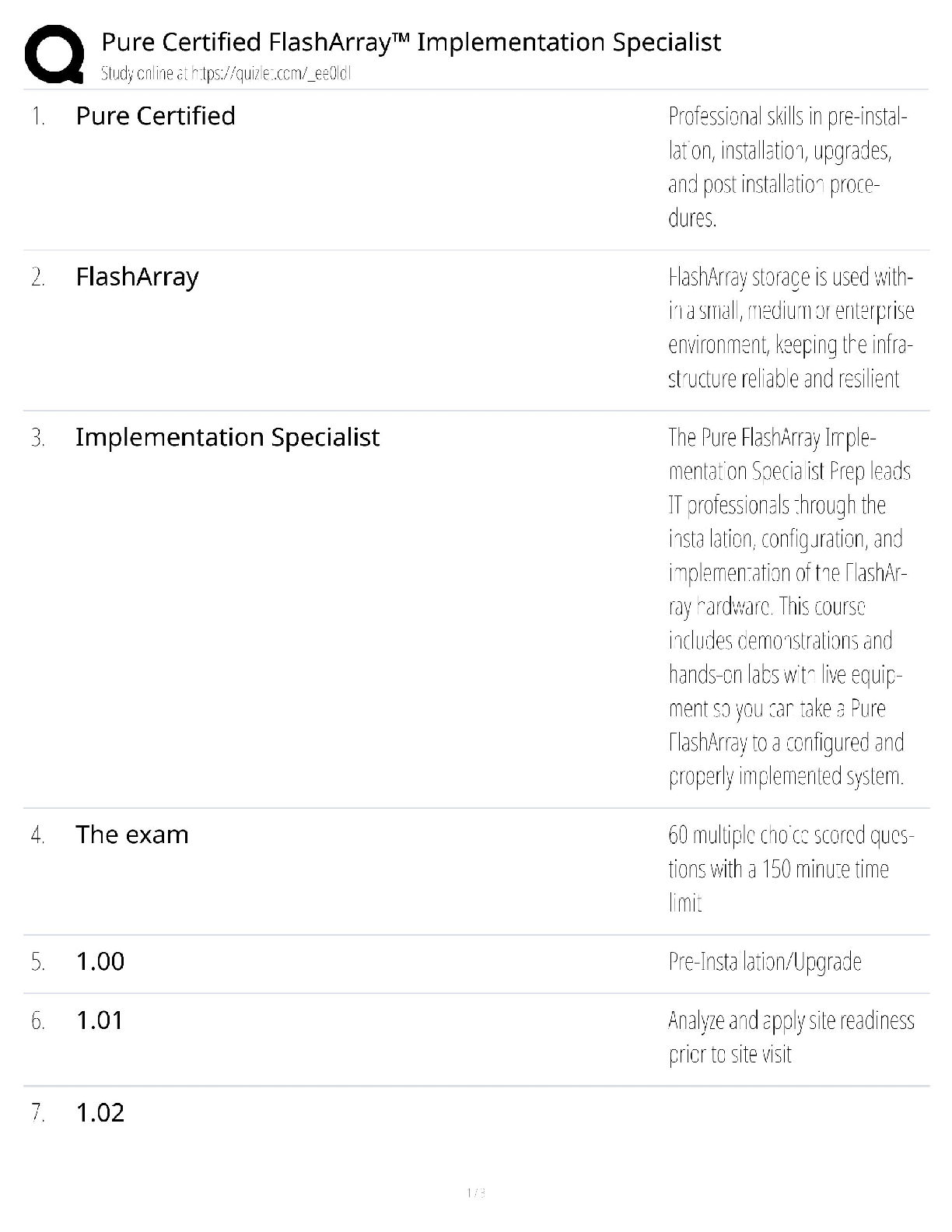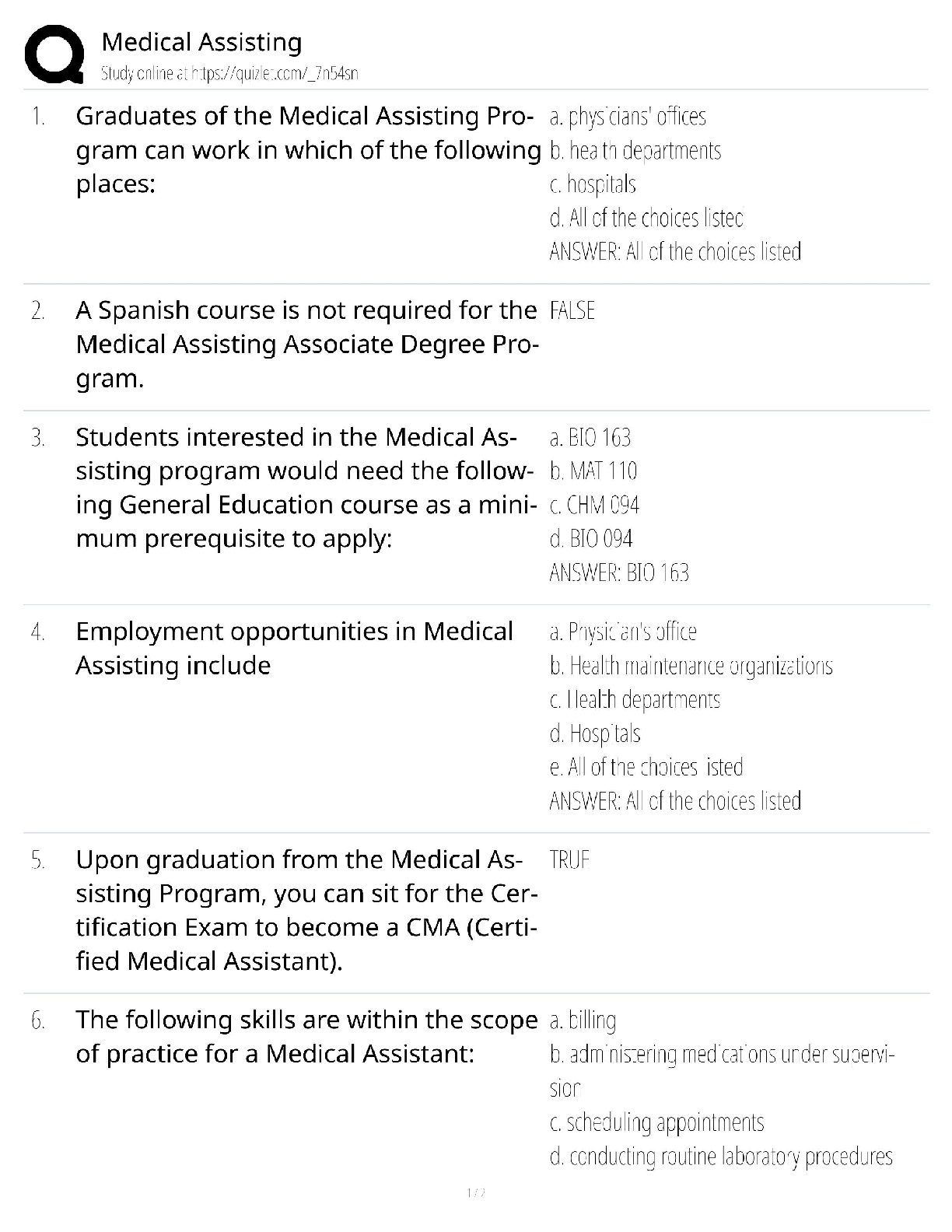Anthropology > QUESTIONS & ANSWERS > Anthropology (ANTH150) Questions and Answers. Graded A (All)
Anthropology (ANTH150) Questions and Answers. Graded A
Document Content and Description Below
Q1. Please explain what a Gini coefficient measures and how it does so through a careful description of the standard Gini coefficient graphic (available on Wikipedia in the article on Gini coefficient ... or elsewhere). Do so in your own words and do not paste any words into your answer from anywhere. This will require describing what the Lorenz curve plots (i.e. what is on the horizontal and vertical axes) and how the Gini coefficient is calculated. Q2. Describe what a historical sequence of Gini coefficients can tell us about a country and its policies. Explain also why a Gini coefficient cannot be used to discover what proportion of a country’s total inequality can be attributed to membership in subgroups (e.g. males and females or minorities). Hint: imagine two subgroups each with their own Gini coefficient and a Gini coefficient for the entire society - is there any way these numbers could explain how much of the societal Gini coefficient can be attributed to unfair treatment of one of those subgroups? Q22. What major innovations made by Edward Bernays are discussed in Part 1 of The Century of the Self? Q23. Part 1: How did the positions of George Gallup and President Roosevelt differ from those of Edward Bernays and The National Association of Manufacturers in the years after the New Deal. Q24. Part 2. How were Anna Freud’s ideas about controlling emotions implemented across America and what role did Ernest Dichter have in turning these ideas in directions similar to those of interest to Edward Bernays. Q26. In Part 3, of The Century of the Self, explain the innovations of SRI. What were its goals and how did it achieve them, what influence did their research have on current market research ? Q27. In Part 4, of The Century of the Self, explain how focus groups came to be used by politicians and discuss whether it subverts the democratic process to have swing voters determine public policies. Q34. In your own words explain how economic theory suggests a business should respond to a change in the corporate income tax and what factors economic theory suggests will determine business decisions to expand or contract business investments. Q37. Remembering the question on South African land reform and the video on Nigeria’s Oil Wars (shown in class and available as streaming video in the U of A library) explain how you might use taxation to address the grievances of the people impacted by the international oil industry in the Niger delta. Why do you think such a remedy is not provided by the Nigerian government? Do you think there are similar reasons South Africa has not made more progress on land reform? Q46. Referring to the distinction between “weak” and “strong” versions of the precautionary principle decide whether climate related risks merit application of the strong or weak form of the precautionary principle or no precautions at all and explain why you reach this conclusion. Q53.Reading the World Development Report 2006, Focus 7 (pp.224-5), In your own words explain what the proposed generic region graphic proposes and evaluate it from an ethical point of view. Q54. How might the US tax system be improved and productivity enhanced by eliminating income tax and relying on other taxes such as a progressive consumption tax and corporate taxes? Q55. Having watched the streaming video Vandana Shiva: Thinking Existenz (in the library), explain what Vandana Shiva means by biopiracy and why she finds it unacceptable. Q56. What aspects of neoliberalism have enhanced global inequality? How has over reliance on the market caused problems in a) the United States and b) South Africa? [Show More]
Last updated: 3 years ago
Preview 1 out of 7 pages

Buy this document to get the full access instantly
Instant Download Access after purchase
Buy NowInstant download
We Accept:

Reviews( 0 )
$8.00
Can't find what you want? Try our AI powered Search
Document information
Connected school, study & course
About the document
Uploaded On
Jan 21, 2020
Number of pages
7
Written in
All
Additional information
This document has been written for:
Uploaded
Jan 21, 2020
Downloads
0
Views
2682


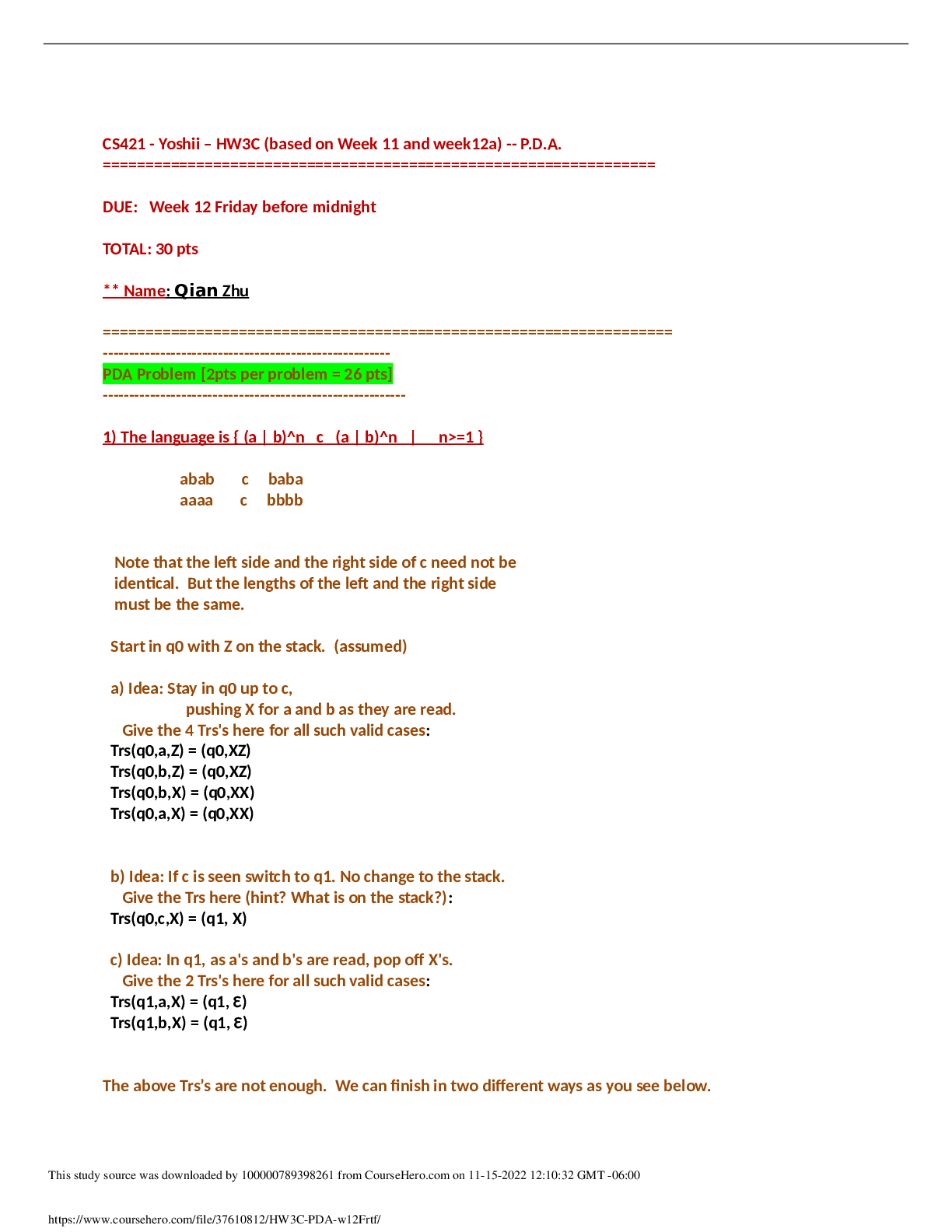


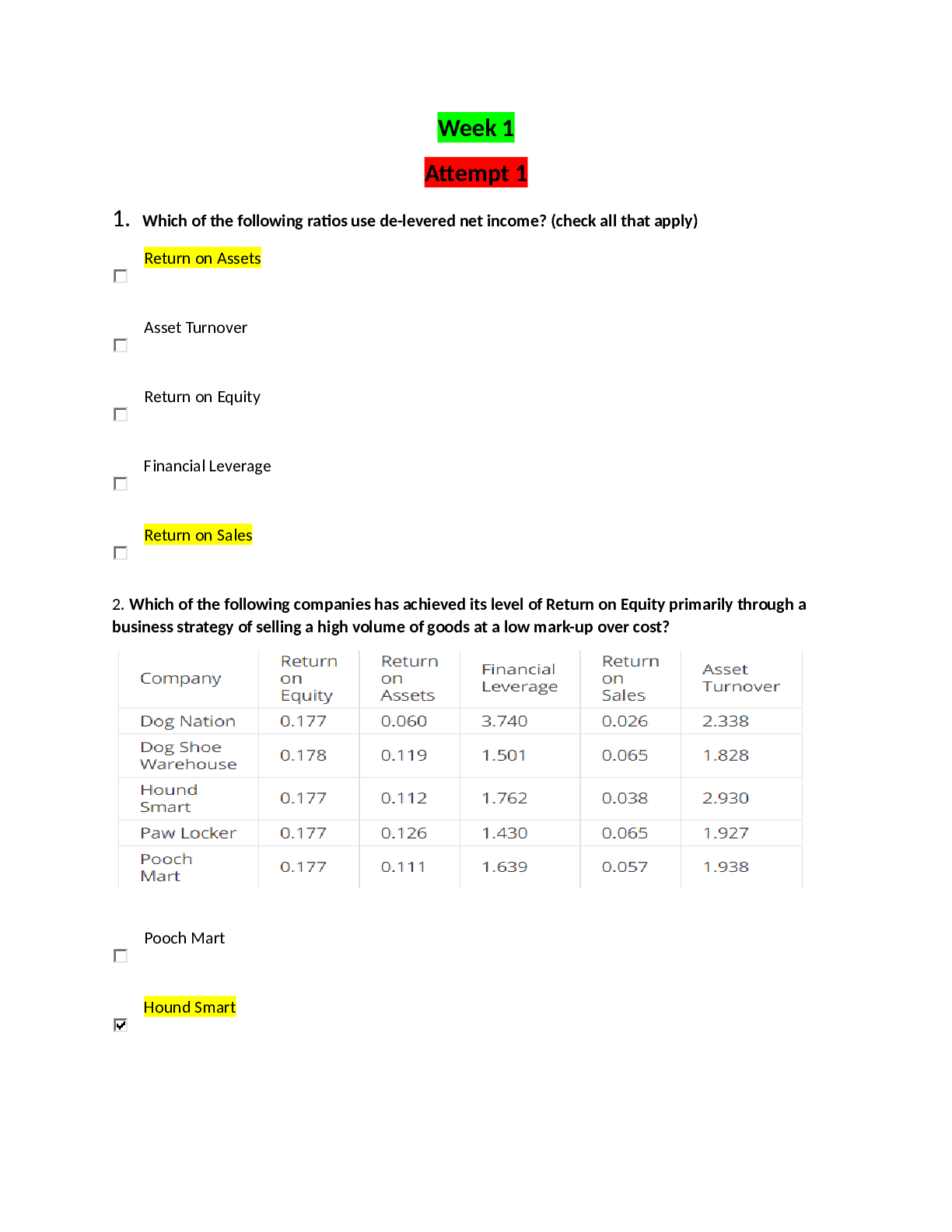
.png)
.png)
.png)
.png)
.png)
.png)
.png)

